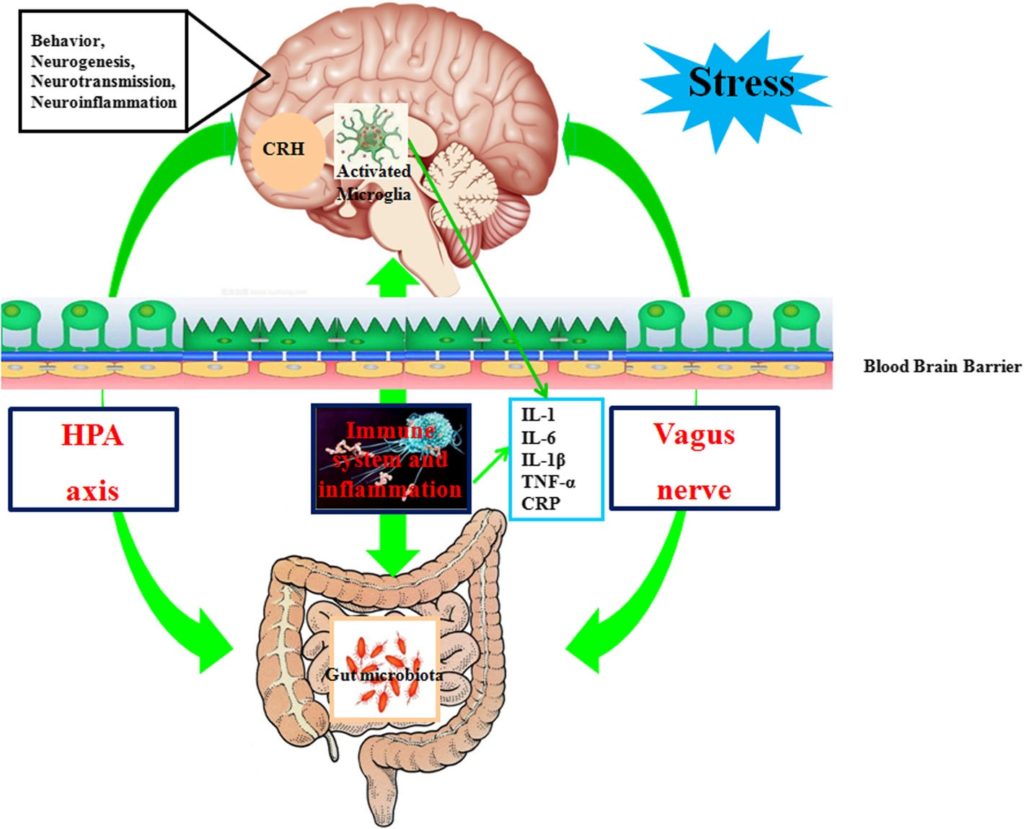Role of inflammation in depression relapse
Kristen Sparrow • January 05, 2020


I am not sure how this article ended up in my inbox, but I’m so glad it did! Inflammation is everywhere, and involved in almost everything. Acupuncture helps activate vagal activity and inhibit sympathetic activity. So does vagal nerve stimulation. We need better tools for study, which is what I’m working on. Back to work!
Role of inflammation in depression relapse.
Author information
- 1
- Beijing Hospital of Traditional Chinese Medicine, Capital Medical University, Beijing Institute of Traditional Chinese Medicine, Beijing Key Laboratory of Acupuncture Neuromodulation, Beijing, 100010, China.
- 2
- Dermatological Department, Beijing Hospital of Traditional Chinese Medicine, Capital Medical University, Beijing, 100010, China.
- 3
- Acupuncture and Moxibustion Department, Beijing Hospital of Traditional Chinese Medicine, Capital Medical University, Beijing, 100010, China.
- 4
- Clinical Affective Neuroimaging Laboratory (CANLAB), Otto-von-Guericke-University Magdeburg, Magdeburg, 39120, Germany.
- 5
- Department of Biomedical Engineering, New Jersey Institute of Technology, Newark, NJ, 07102, USA.
- 6
- Department of Psychiatry and Psychotherapy, University of Tuebingen, Tubeingen, 72074, Germany.
- 7
- Leibniz Institute for Neurobiology, Magdeburg, 39118, Germany.
- 8
- Department of Psychiatry, University of Connecticut Health Center, Farmington, CT, 06030, USA. lwang@uchc.edu.
Abstract
Major depressive disorder (MDD) is a leading cause of disability worldwide. After the first episode, patients with remitted MDD have a 60% chance of experiencing a second episode. Consideration of therapy continuation should be viewed in terms of the balance between the adverse effects of medication and the need to prevent a possible relapse. Relapse during the early stages of MDD could be prevented more efficiently by conducting individual risk assessments and providing justification for continuing therapy. Our previous work established the neuroimaging markers of relapse by comparing patients with recurrent major depressive disorder (rMDD) in depressive and remitted states. However, it is not known which of these markers are trait markers that present before initial relapse and, consequently, predict disease course. Here, we first describe how inflammation can be translated to subtype-specific clinical features and suggest how this could be used to facilitate clinical diagnosis and treatment. Next, we address the central and peripheral functional state of the immune system in patients with MDD. In addition, we emphasize the important link between the number of depressive episodes and rMDD and use neuroimaging to propose a model for the latter. Last, we address how inflammation can affect brain circuits, providing a possible mechanism for rMDD. Our review suggests a link between inflammatory processes and brain region/circuits in rMDD.


